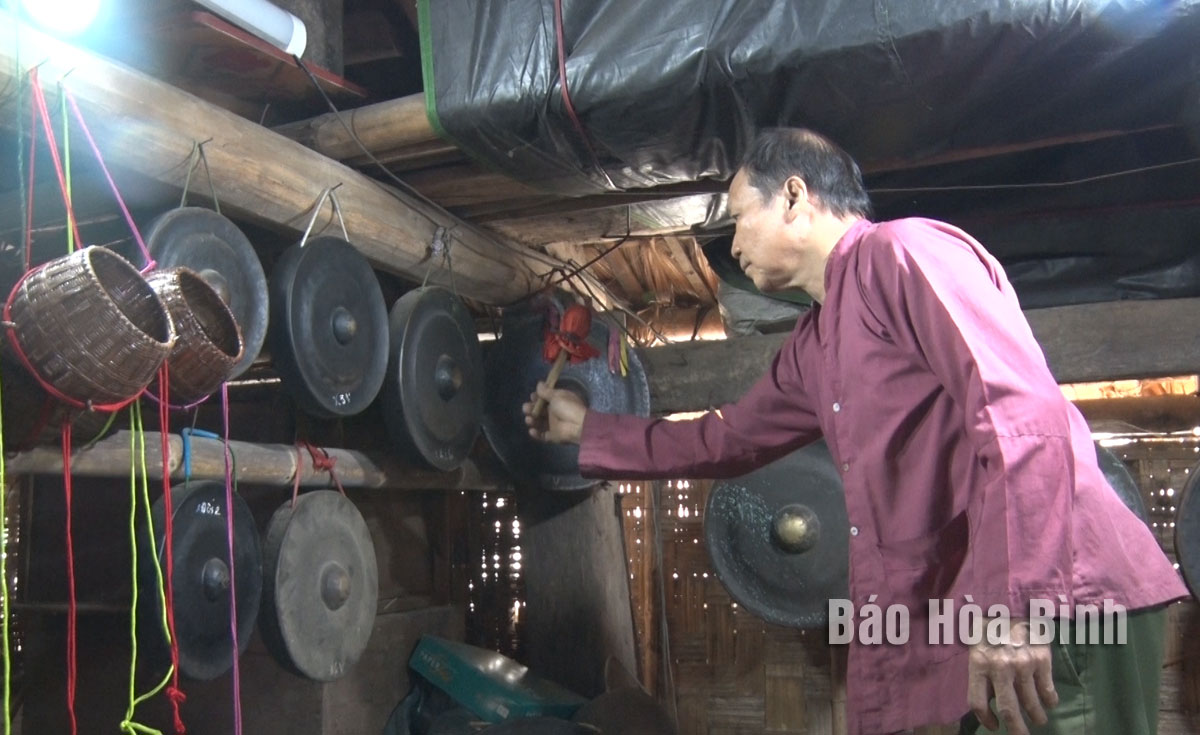(HBO) – Devoting his entire life to collecting and preserving ancient gongs, Meritorious Artist Bui Tien Xo from Vinh Tien commune, Kim Boi district, is said to be "fatefully connected" to the Muong gongs. Enchanted by the gongs, he is willing to spend money, time, and effort to preserve and promote the unique cultural aspects of the Muong ethnic group.
Meritorious
Artist Bui Tien Xo from Vinh Tien commune, Kim Boi district stands beside his
precious gongs.
Xo was born in 1953 and originally
came from Lac Son district. At the age of 17, he moved with his parents to
hamlet 168 in Vinh Tien commune. From a young age, the cultural life of the
Muong ethnic group, especially the sound of gongs, became an integral part of
him. During the 1990s when the country was facing economic difficulties, many
families had to sell their old gong sets. Unable to bear the
"bleeding" of the traditional culture, Xo, who was then a
collaborator with the provincial Union of Literature and Arts Associations,
traveled on his bicycle throughout the mountains and forests of Hoa Binh to
repurchase these gongs.
With his dedication, Xo collected nearly 60 Muong gongs. Not only collecting
and preserving Muong gongs, Xo is also a versatile artist. He could play and
perform impressively with nearly 20 types of musical instruments from various
ethnic groups in the mountainous regions, as well as some modern musical
instruments.
At present, despite his old age, Xo continues to teach gong playing regularly
throughout the district, both in and outside his hometown. He is driven by the
desire to preserve and protect the Muong gong tradition for the younger
generation. He never asks for any payment for teaching, as what worries him
most is that no one wants to learn gong playing.
Bui Thi Quyen, a member of the Muong gong club in Thao Ca hamlet, Vinh Tien
commune, said since the establishment of the Muong gong club, with direct
guidance from Xo, the club members have become proficient in playing Muong
gongs.
With his knowledge and passionate heart, Xo has taught hundreds of people
throughout the villages, hamlets, and communes of the Muong Dong region how to
know and love the gong melodies. Many of his students are school children and
young people. During local events and festivals, he willingly lends his set of
gongs and actively joins them.
Bui Van Nam, Vice Chairman of the Vinh Tien communal People's Committee, said
Xo has always been at the forefront of preserving and promoting the cultural
values of the ethnic minorities, especially the Muong gong culture. With his
contributions, Xo has played a part in preserving Muong gong culture as an
enduring underground stream for future generations.



